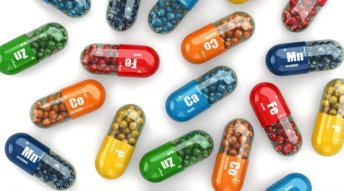When it comes to cancer, larger doses of vitamins can indeed be harmful.
We live in a society that often thinks, if something is helpful, then more must be better. When it comes to vitamins, this is not logical and definitely not true.
There are some basic rules regarding too much of certain vitamins. Doses near or at the recommended daily allowances are indeed recommended for a reason. Most vitamins (though not all) are often risky when taken at excessively high doses.
In other words, Vitamin A, D, E, K, Calcium and even B1, B2, B6 can carry this risk. This is particularly true of fat soluble vitamins. Vitamin A, D, E and K when taken in larger doses, lead to accumulation in fatty tissues like the liver, instead of being eliminated in the urine like water soluble vitamins. Expensive urine is not so dangerous, but killing your liver is not a good idea.
Vitamin E may be the most harmful when taken in large doses clearly leading to liver death, then patient death. A Small enough dose is perfectly safe. In fact, nearly all observational studies suggest an increased risk of death when taking even a moderately larger doses of Vitamin E.
Vitamin D can lead to a syndrome term Hypervitaminosis D. This often leads to high calcium levels with nausea, altered thinking and dehydration. Keep in mind some people need more Vitamin D, but often it’s not a good idea to take more than what is necessary.
The same goes for vitamin A toxicity, called Hypervitaminosis A, leading to possibly abdominal pain, nausea, irritability and drowsiness, visual disturbance and bone pain.
Vitamin B6 in larger doses above 100 mg daily, increases nerve toxicities while at lower doses is often considered helpful if nerves have been damaged from other agents or reasons (like certain chemotherapy drugs).
Given current literature, B12 is the safest product at large doses. In fact, it often requires very large doses to achieve, thru passive absorption, adequate B12 levels. If the intrinsic factor levels are quite low (this protein is normally produced in the stomach and must be adequate to absorb the low doses of B12 listed at the recommended daily allowances). Higher doses of this vitamin may be safe, even desired if this protein is low, as often found in cancer patients those previously getting treatment for cancer.
So, can vitamins be harmful if you take high doses? Clearly the answer is yes. Especially when taking fat soluble vitamins. It is definitely best to limit these vitamins and sometimes even avoid them regarding a cancer patient. If you would like to learn about a daily multivitamin that takes into account what we have been discussing, visit our wellness shop.

